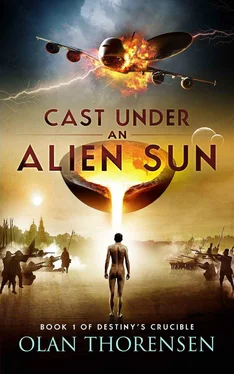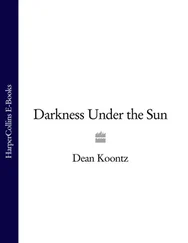The black ink divided the land into large sections with blue or red numbers. Offering no explanation, the clerk mumbled to himself as he examined the map. Yozef divined that the blue referenced the owner, and red meant there were many smaller parcels, and a scroll with more detail was needed. Yozef’s and the official maps were compared to satisfy the clerk that Yozef’s maps were reasonably drawn, then another roll showed the regions containing Yozef’s two sites of interest. The first thing Yozef noted was that most of the region fell within a single marked parcel, with smaller parcels ending only a mile or so from Abersford.
This means no one owns the land I’m interested in? That doesn’t seem likely. Someone owns everything .
The clerk examined the official map closely and compared it to Yozef’s, then looked up. “It appears this is undeveloped land, according to our records. This usually means the terrain is unsuited to common uses, such as farming, and no minerals worth mining have been found there. You have examined the land carefully?”
“Very carefully,” answered Yozef.
“Did you find any signs of present or past occupation or human activity?”
Yozef shook his head. “Nothing I could see. A few game trails, but no sign anyone has been there recently.”
The clerk nodded and spoke in the rote cadence of someone who has said the exact words innumerable times and was hardly aware of what he was saying.
Sounds like the McDonald’s worker telling a customer, “Thank you for eating at McDonald’s and have a nice day,” in one breath.
“Then we can register you as the temporary owner, subject to your showing improvements and use of the land within one year, no other claimants to the land appearing, and continued use yearly thereafter. Any lapse in use of the land, and it reverts to the clan.”
At first, Yozef wasn’t sure he knew what the clerk was saying. When he didn’t respond after a few moments, the clerk looked up, annoyed.
“Sorry,” Yozef said. “I’m new to Caedellium and not familiar with the laws and customs. Do you mean this land doesn’t belong to anyone?”
“It belongs to the clan until someone registers its use and continues that use,” the clerk said in a tone implying, “As any dolt knows.”
“So … I don’t have to buy the land?”
“You can’t buy the land, because it belongs to the clan. If no one else is using the land, you can try to make something of it. If you do, then the land is yours as long as it’s being used by you or your heirs. The same applies to anyone you might sell the land to.” You, double dolt, being unspoken.
It was logical, once he thought about it. The island was still underpopulated for its resources. The system worked well now because as the population grew, people could expand into empty land that the government, the clan, or whatever, kept in trust until that time. It might work well until all usable land was taken up, and then they’d have a problem adjusting to a permanent ownership system.
“In that case, I’d like to register to use these two parcels of land.”
The clerk opened a drawer and pulled out two forms.
I’ll be damned. Honest to God forms. God knows how far I am from Earth and still forms!
It was a piece of paper with print and lines and boxes to fill in. Yozef had read printed books at the abbey but had assumed they were all imported. The form the clerk handed him had obviously been printed here on the island, since some of the information asked for was specific to Caedellium. It wasn’t a long form, but one section asked about the intentions for the property. He wrote “to build a house” for the parcel at the small cove and “mining” for the inlet parcel. The clerk took both forms and, to Yozef’s surprise, didn’t ask the two obvious questions: “Why would anyone build a house on useless land where there are no roads?” and “Why would you be mining on beaches and offshore rocks?” Evidently, once the form was filled in, the bureaucratic attention span ended there, just as on Earth.
Yozef filled out the forms, signed them, and handed them back to the clerk, who cautioned, “Be sure to place stone markers with the parcel number chiseled in them. The borders you specified are straight enough to need markers only at the corners and shoreline. You will need to have the local registrar agent inspect the sites and the markers in the next three months to confirm the marker locations.”
With those final instructions, the clerk counter-signed and stamped the form with a seal, collected twenty krun per parcel, informed Yozef that a local magistrate would check on the requirements for usage in a year, and gave Yozef a “deed” spelling out the exact locations and condition. Yozef walked out of the office with the deeds secured in his satchel, the proud owner of two parcels, as long as he worked or used the land.
The Anyar sun was still high enough in the clear sky for Yozef to estimate he had five to six hours of daylight left. Based on his partial tour of the town and some directions given by the registrar clerk, he visited shops and bought a backpack, several vials of red and blue ink, some bread and cheese, two comfortable pairs of shoes for everyday wear, and a flagon of wine. He packed it all and headed back to Abersford, walking. The wagon was going back the next day, but he didn’t want to wait. He looked forward to the walk back, so he could see the countryside from a level, non-bouncing position. His rear appreciated the plan.
The fifteen miles took him six hours. By the time he got home, the last light had faded, travel complaints had long ago shifted from his butt to his feet, and the bread, the cheese, and the wine were only memories.
An Abbey Burns
Musfar Adalan chafed while waiting for word from his cousin Adel, who’d led the men ashore on their first mainland Caedellium raid. He understood that his place was to remain with the seven ships anchoring offshore. The first raid had been an exception, but his days of always leading from the front were over. His responsibility was to keep control of the ships and respond if the raid went badly. He didn’t doubt his men understood this, though the emotional part of him wanted to be ashore, leading his men, as when he was younger.
Their first raid on the fishing village on the archipelago of small islands making up the Seaborn Province to the northwest of Caedellium had gone smoothly, but this was different. Seaborn was isolated, sparsely populated, and unsuspecting. This time, the target was an abbey complex in Pewitt Province, less than a hundred sea miles from Seaborn. There was always the chance that word of the Seaborn raid had reached the main island, and his men would walk into prepared defenses. Pewitt was also more populated, meaning help could come faster if they were warned.
The Narthani had been their usual annoying selves, making arrogant assurances their information about the Pewitt abbey was accurate. Musfar knew they were sincere and respected the competence of the Narthani pigs, but sending men ashore was nothing to take lightly, especially since most of the men were from his own clan. Many were blood relatives, one of whom Musfar could see in the longboat, rowing back from the shore. Kiltar Adalan was his eighteen-year-old nephew, the son of one of his many younger brothers. This was Kiltar’s first action, and he served as Adel’s aide and runner, meaning the youth would be bringing word on the progress of the raid.
The longboat rowers stowed their oars and secured the boat against the ship’s hull. Kiltar raced up the rope ladder as only an eighteen-year-old could, and Musfar smiled at the memories of when he could do the same.
Читать дальше












